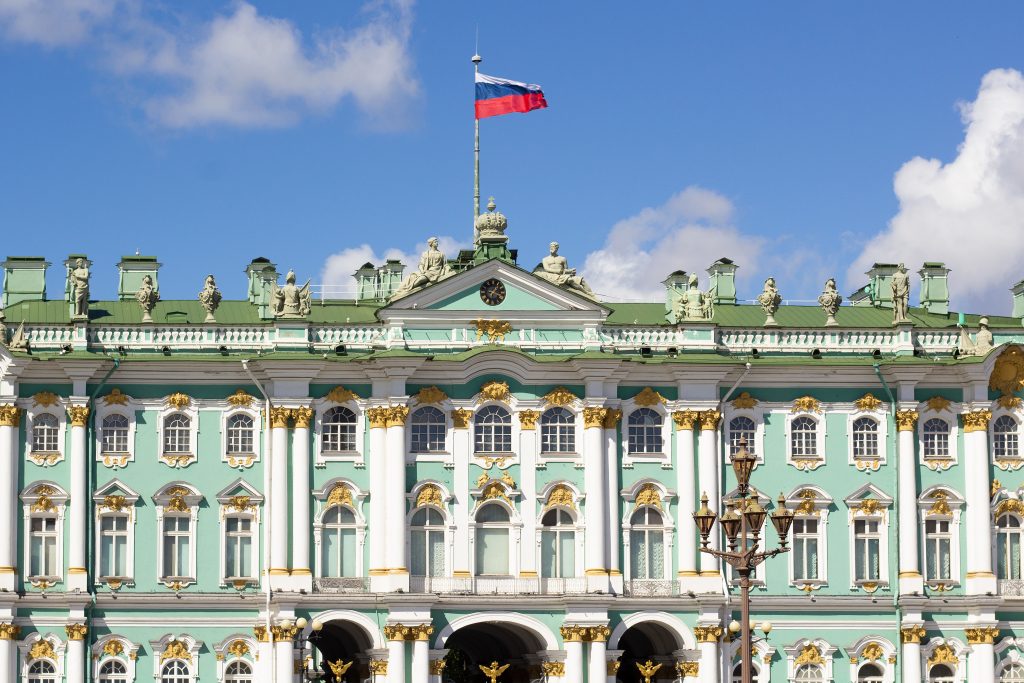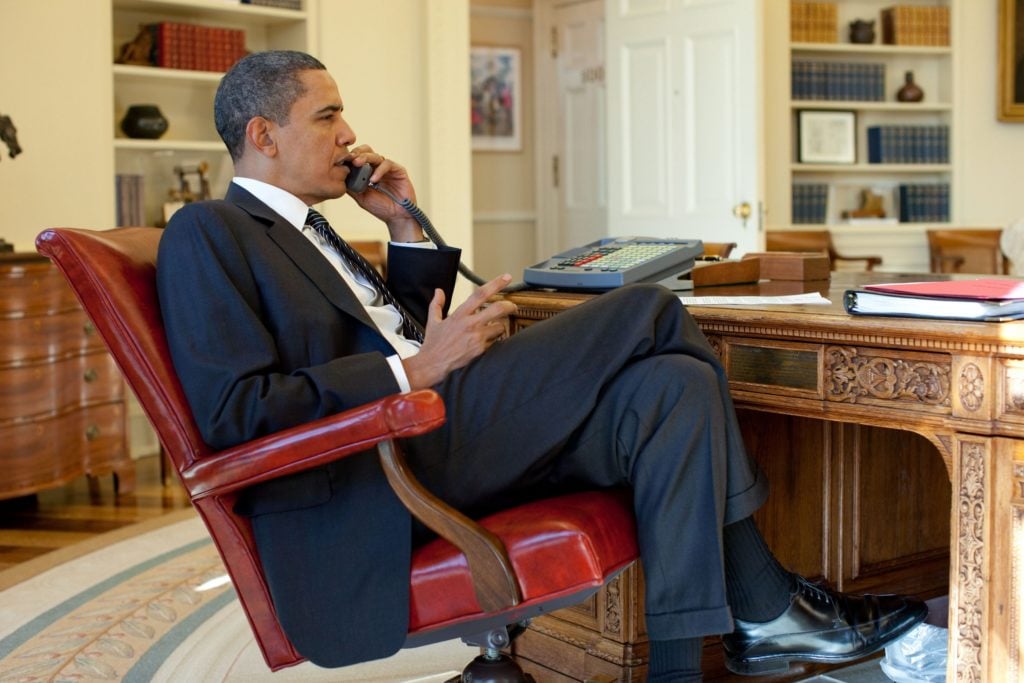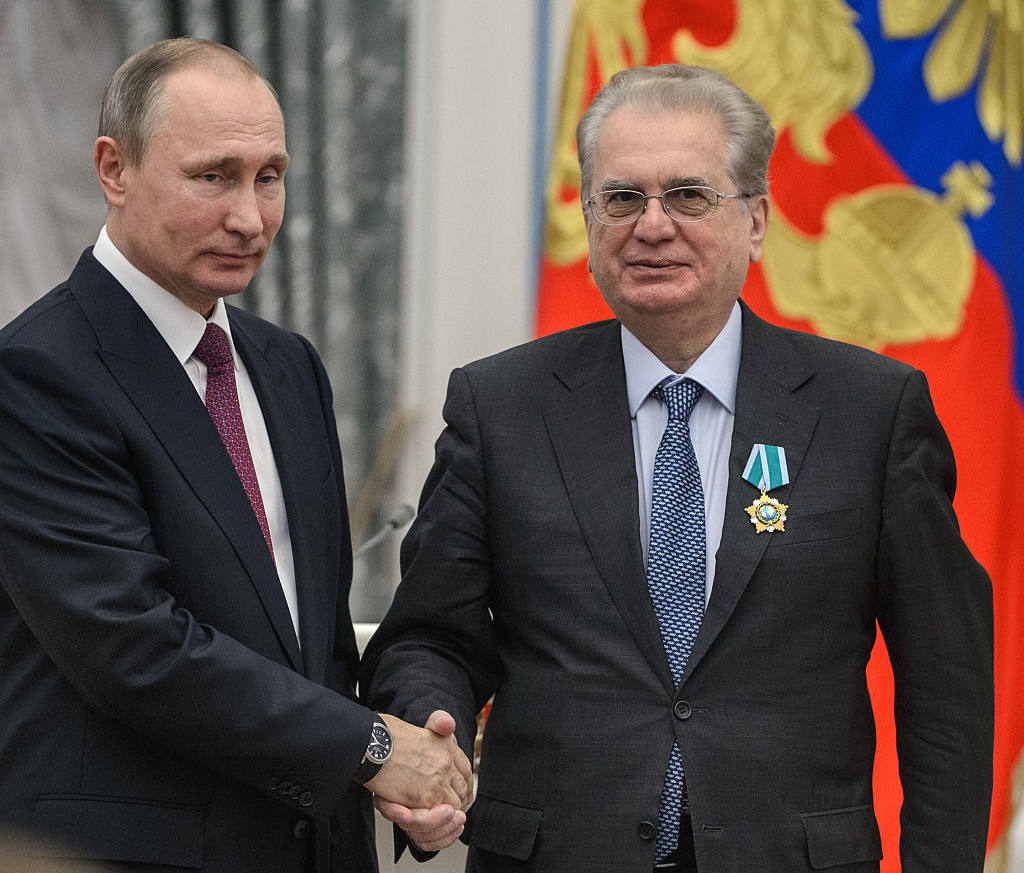Law & Politics
Obama Signs Law That Could Reopen Cultural Exchange With Russia
Russia's major museums have not lent artworks to the US since 2011.

Russia's major museums have not lent artworks to the US since 2011.

A new law signed by President Obama on December 16 grants foreign states immunity from US jurisdiction in cases related to the temporary exhibition of loaned artworks and objects of cultural significance.
Despite current tensions between Obama and Russian President Vladimir Putin—and opposition to the bill from groups like the Holocaust Art Restitution Project—the Foreign Cultural Exchange Jurisdictional Immunity Clarification Act could mean the renewing of cultural exchange between the US and Russia.
There are exceptions to the bill, however, such as for property rights cases that violate international law, specifically artworks looted by Germany or its allies during World War II, or any taken after 1900 “as part of a systematic campaign of coercive confiscation or misappropriation of works from members of a targeted and vulnerable group.”

Barak Obama on the phone in the Oval Office. Photo Universal History Archive/UIG via Getty Images.
The bill has been criticized for its leniency in allowing foreign countries to keep stolen art. Ori Z. Soltes, Chair of the Holocaust Art Restitution Project, described it as “an outrageous bill which would extinguish a number of valid and meritorious looted art claims, not just related to Nazi looted art, but also artworks confiscated during the Bolshevik or Cuban revolutions. Furthermore, this bill will also immunize from suit certain archeological objects looted by ISIS in the Middle East.”
On the other hand, the law has been praised for its potential to open doors for certain countries to loan works of art to the US.
Speaking to the Art Newspaper, the director of the State Hermitage Museum in St. Petersburg, Mikhail Piotrovsky, voiced support for the bill, and for President elect Donald Trump, who reportedly called the Hermitage “the best museum in the world.”

Vladimir Putin and Mikhail Piotrovsky, director of the State Hermitage Museum in St. Petersburg. Photo Dmitry Azarov/Kommersant/Getty Images.
“I greatly hope that this bill will make it possible to get government guarantees on the timely return of exhibitions,” said Piotrovsky. “And then finally the Hermitage’s Gallery of Treasures will be shown in Houston, and we will see Poussin from Philadelphia and El Greco’s Laocoön from Washington.”
Russia’s major museums have not lent artworks to the US since 2011, after a US judge ordered Russia to return a collection of books to a Jewish community in Brooklyn.
The response to the bill mirrors current political tension over the claim by American intelligence agencies that Russian intelligence interfered in the US election through hacked emails. Obama has placed sanctions on Russia, and ejected 35 suspected Russian intelligence agents, according to the New York Times.
Trump has attacked the intelligence community saying their conclusions about the cyber attacks are unreliable. How exactly the outgoing and incoming presidents’ contrasting attitudes towards Russia will affect the art world remains to be seen.